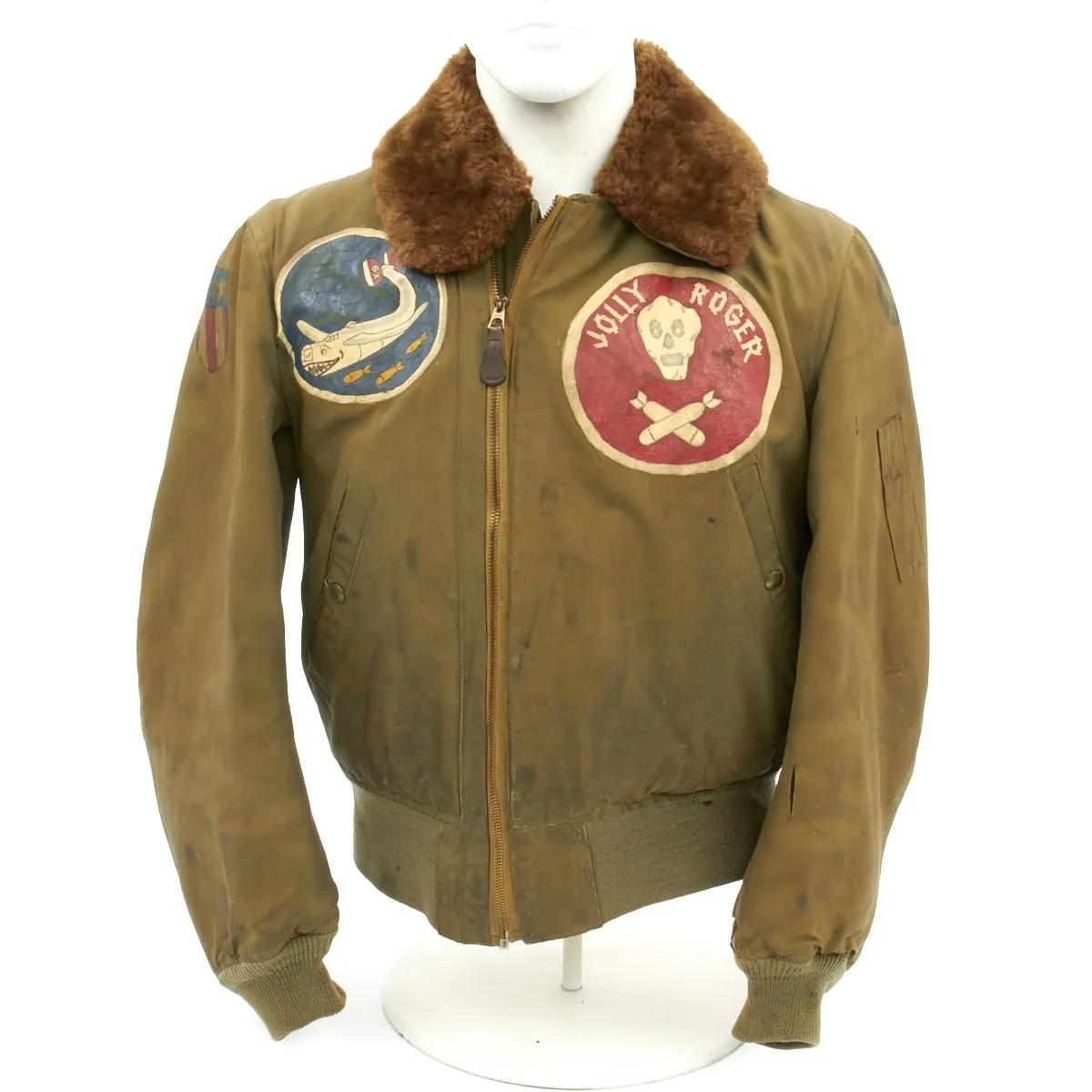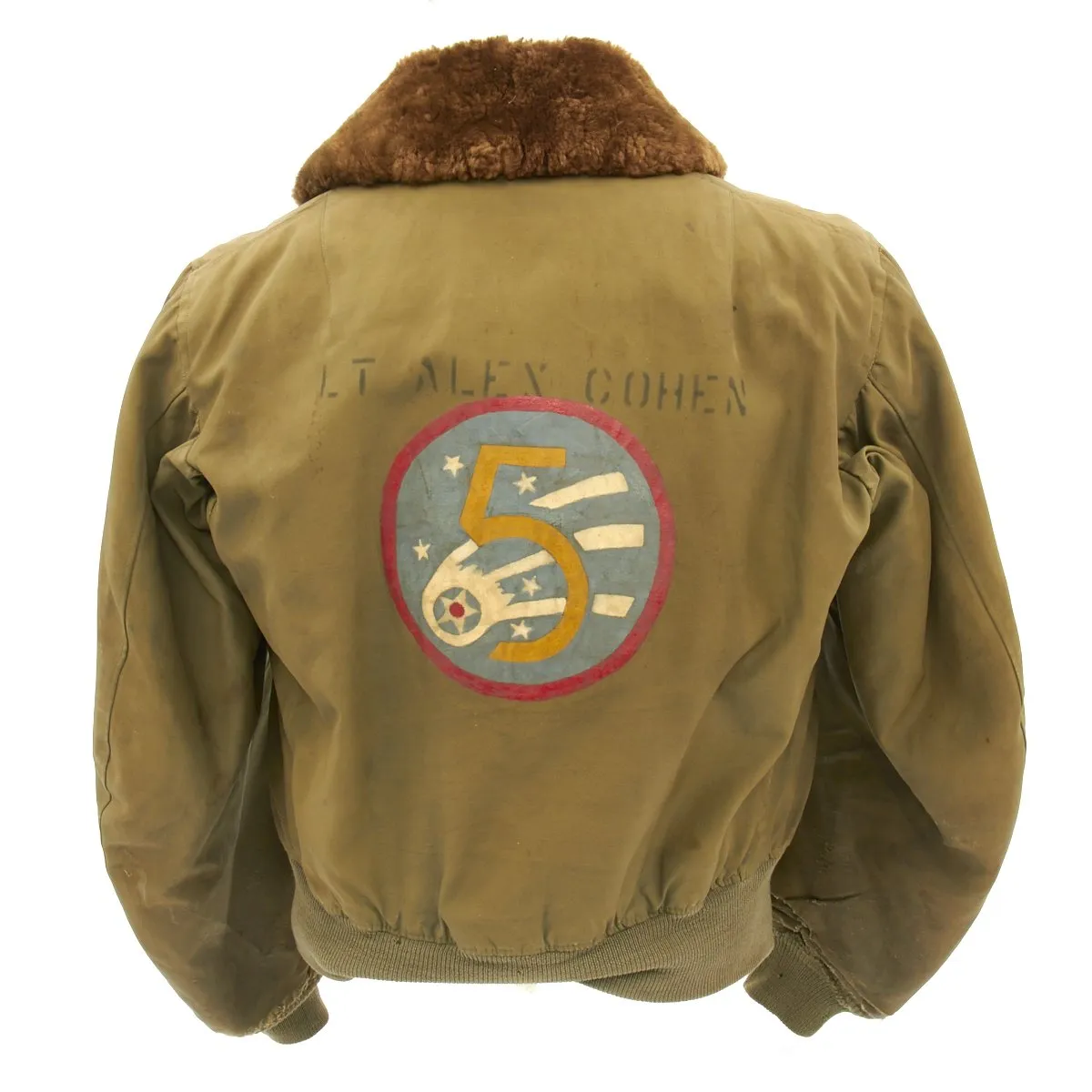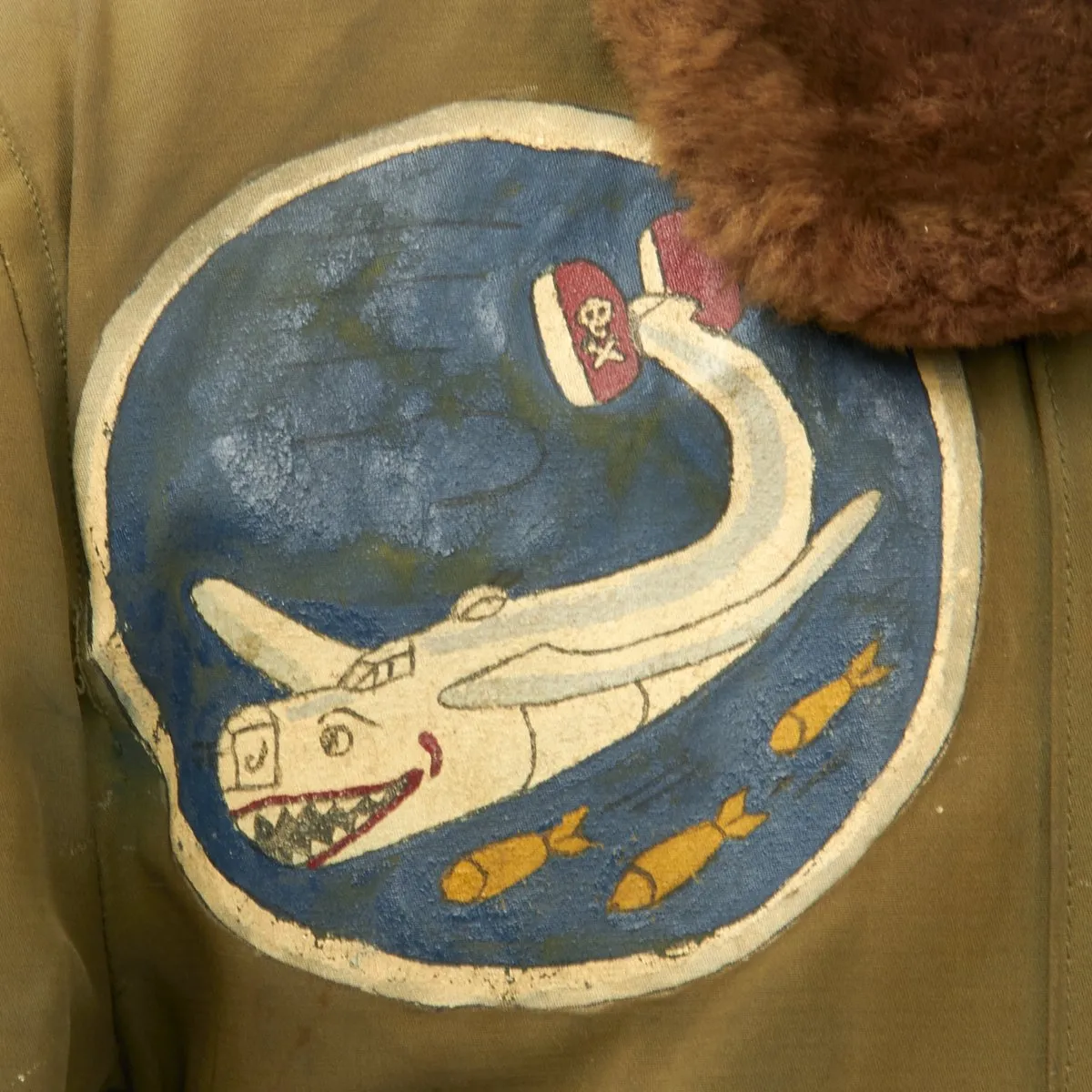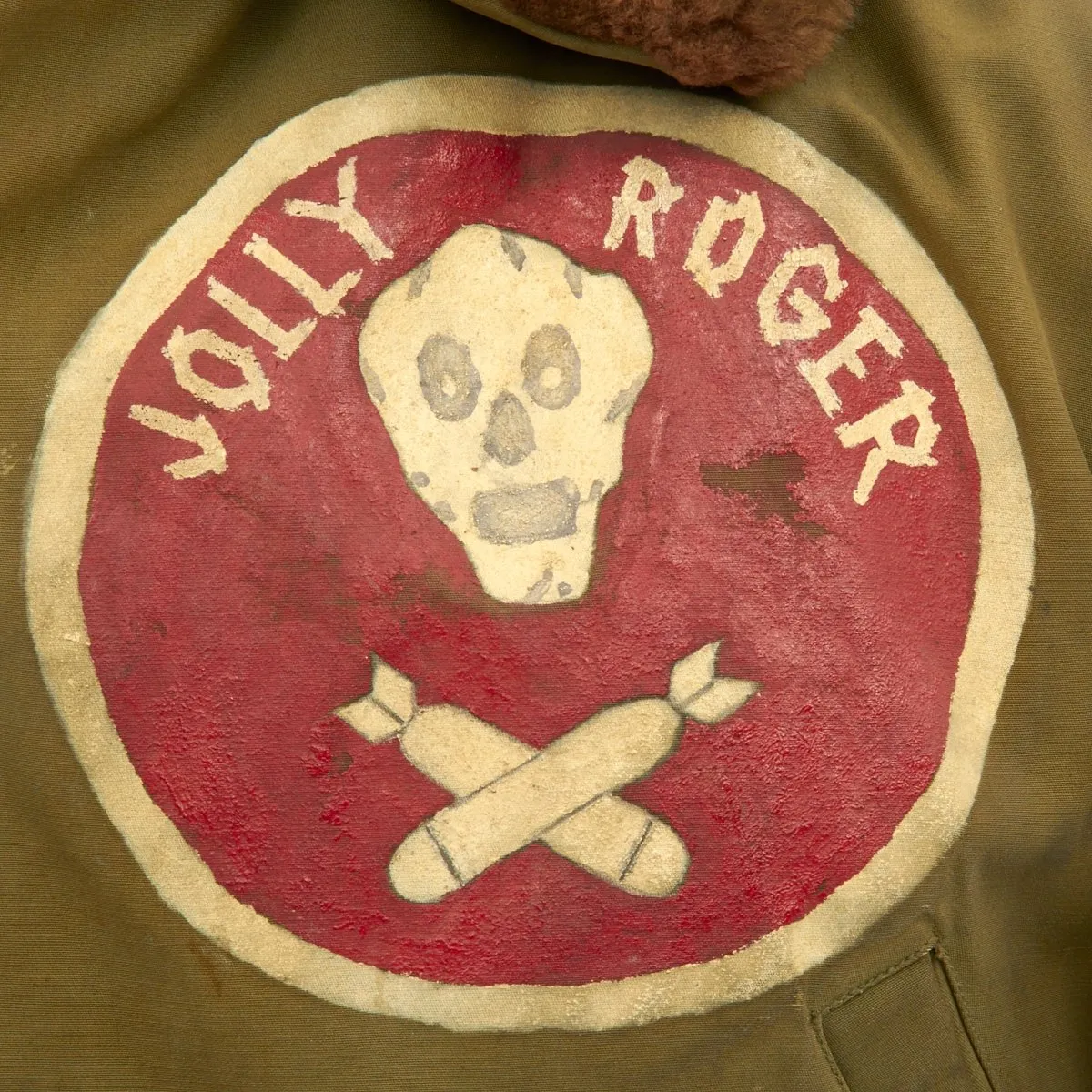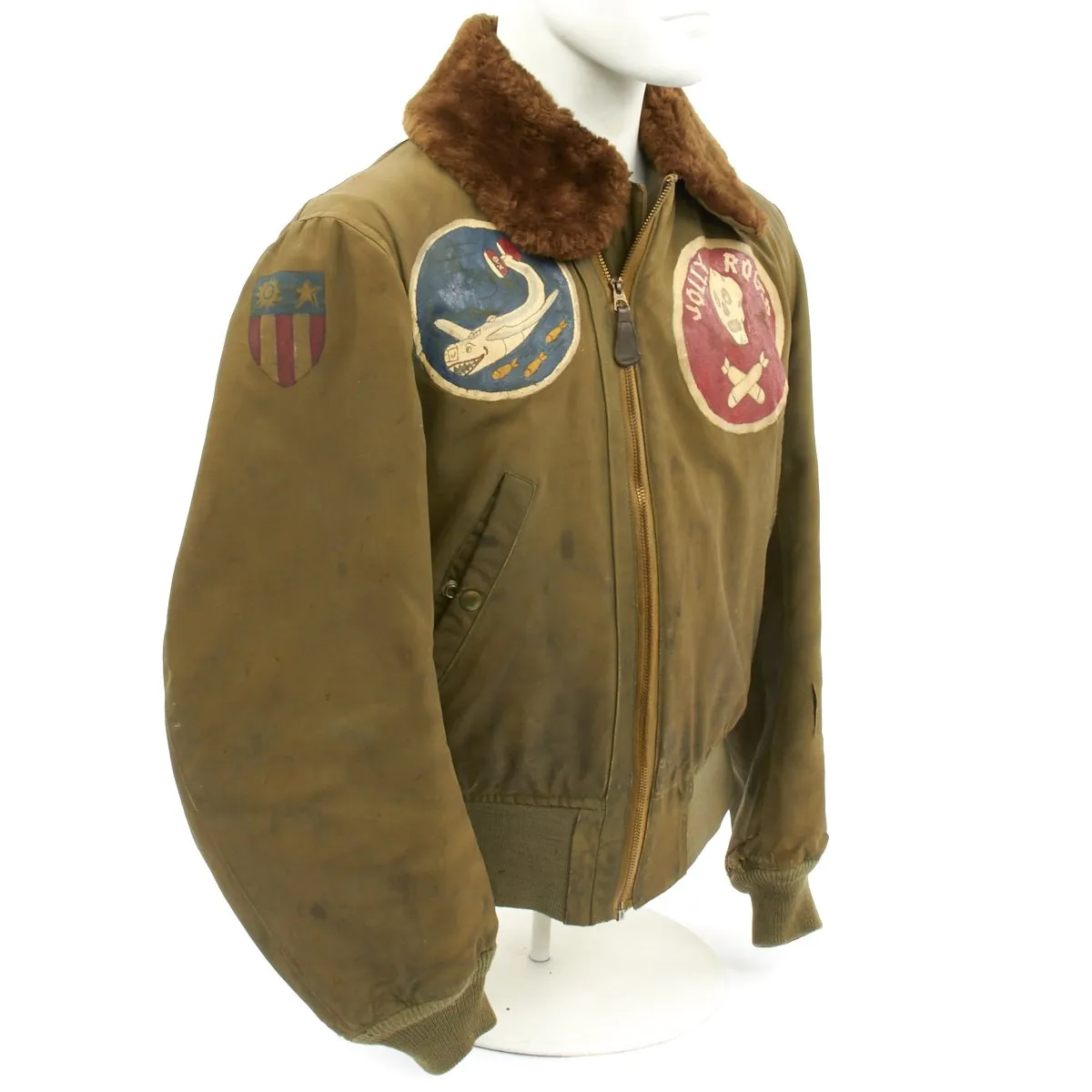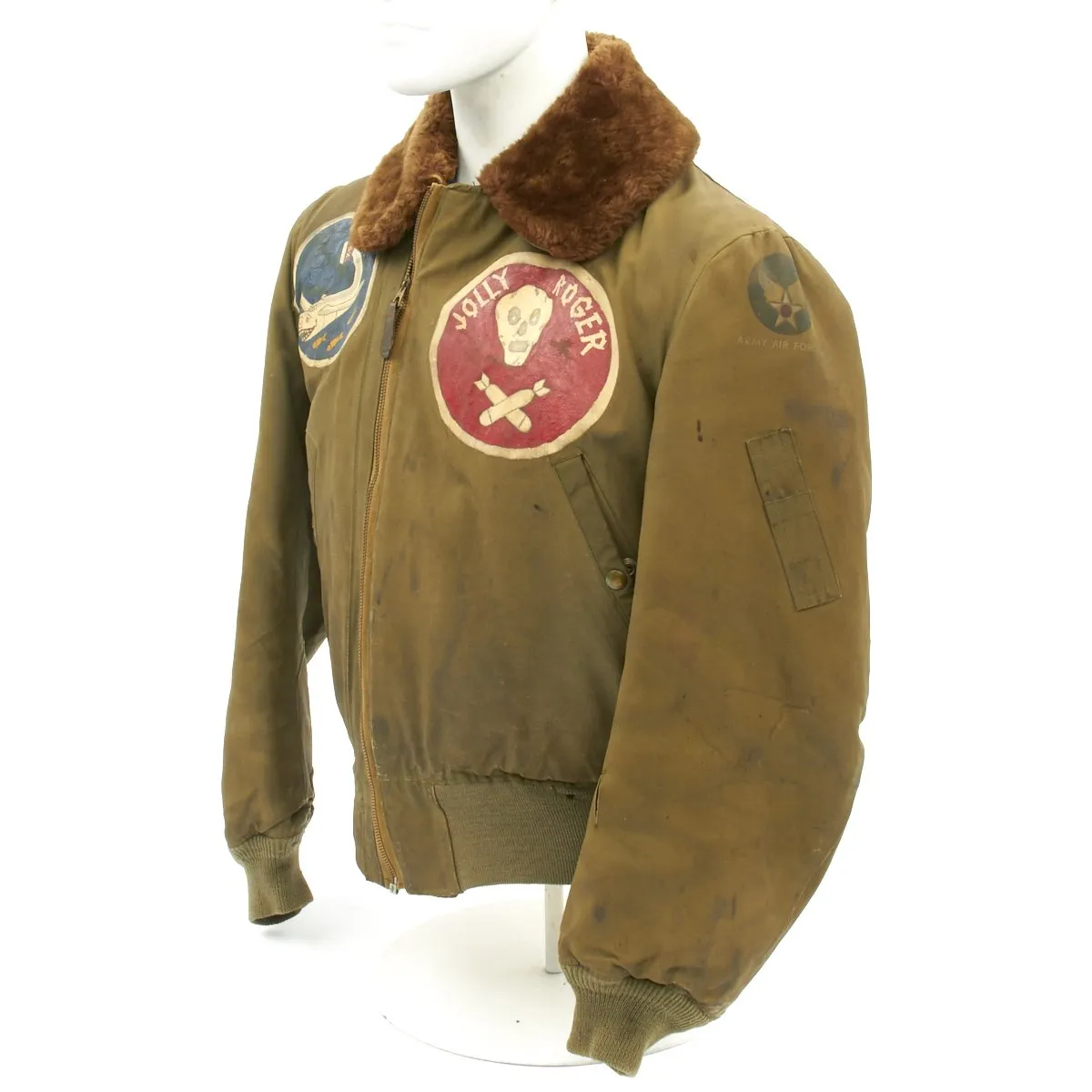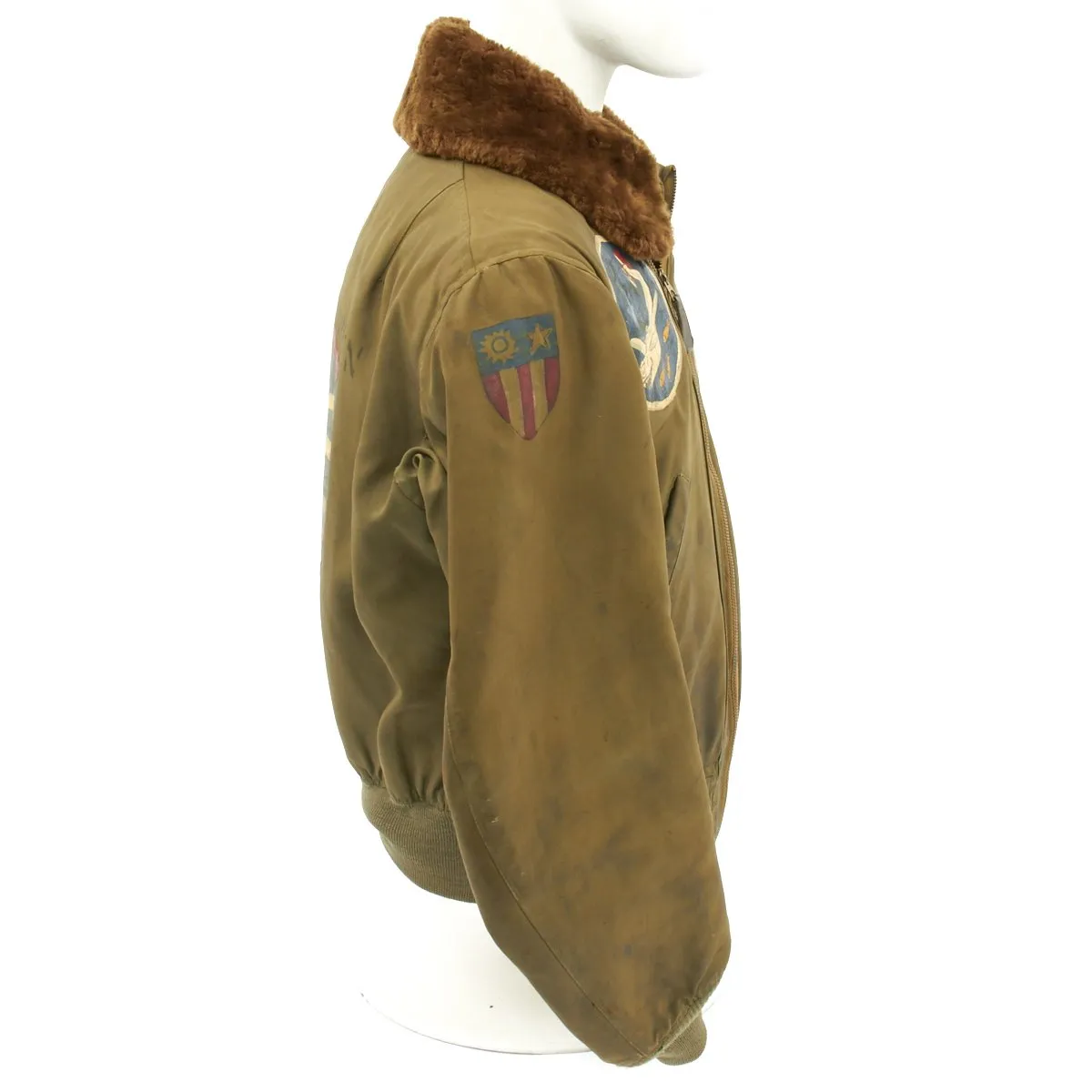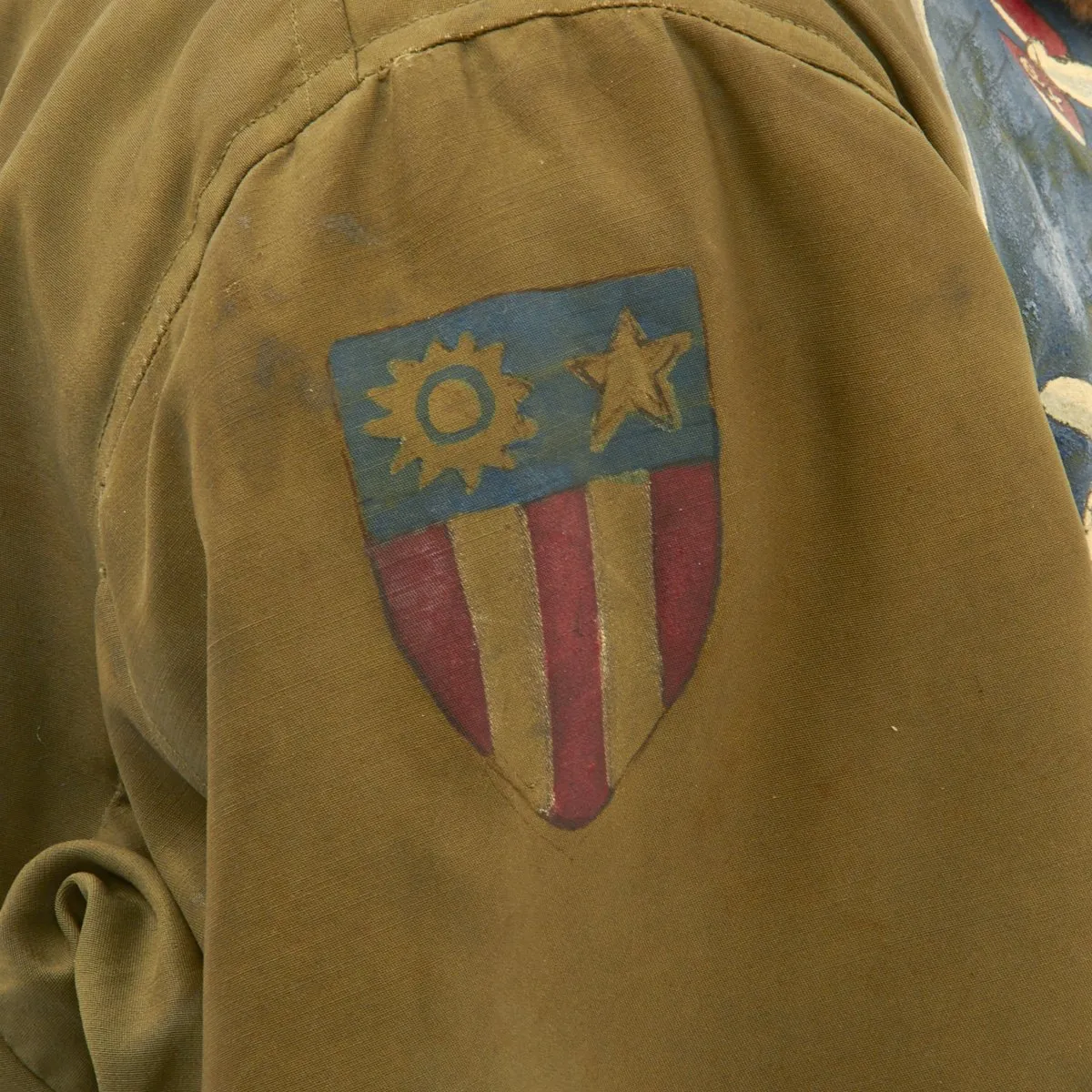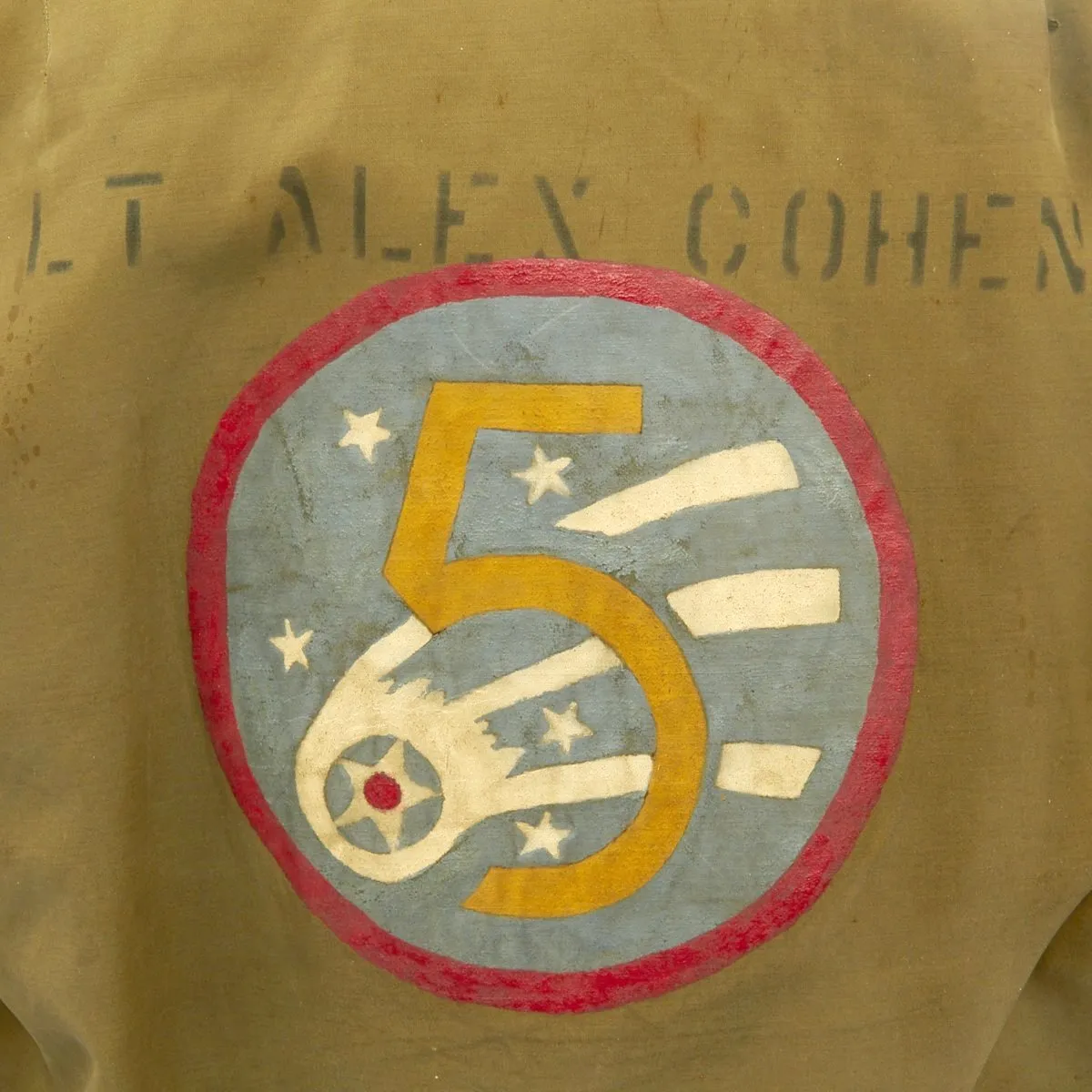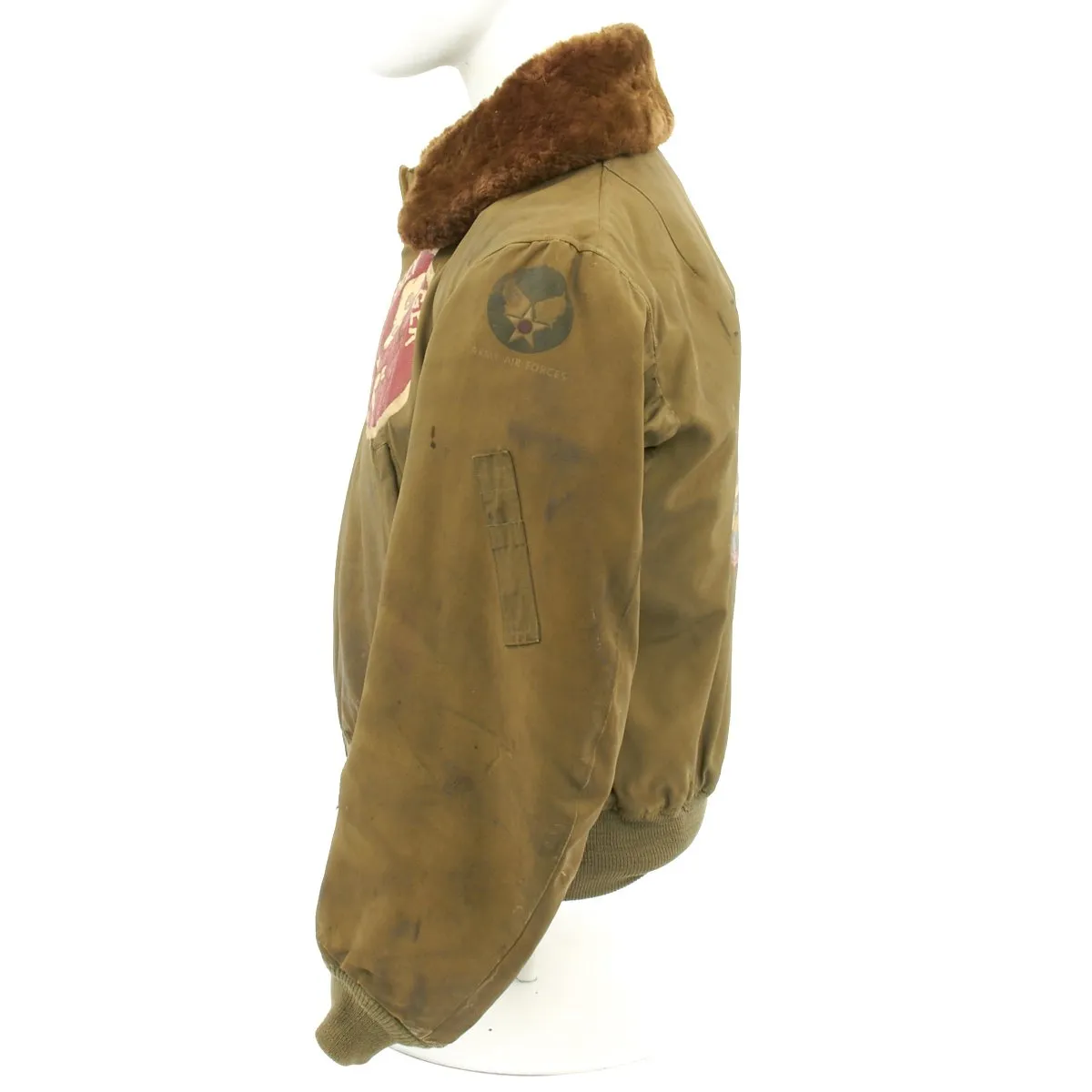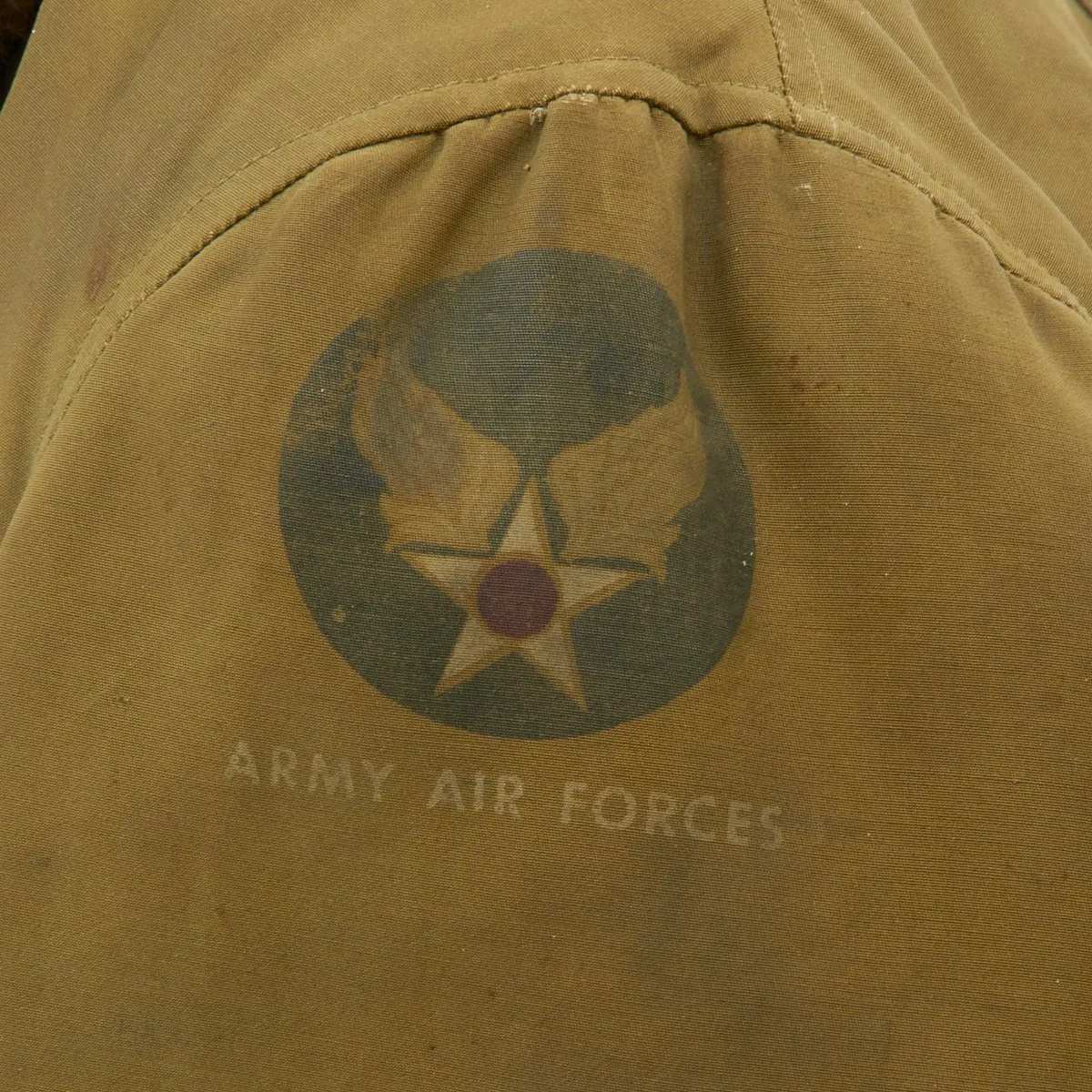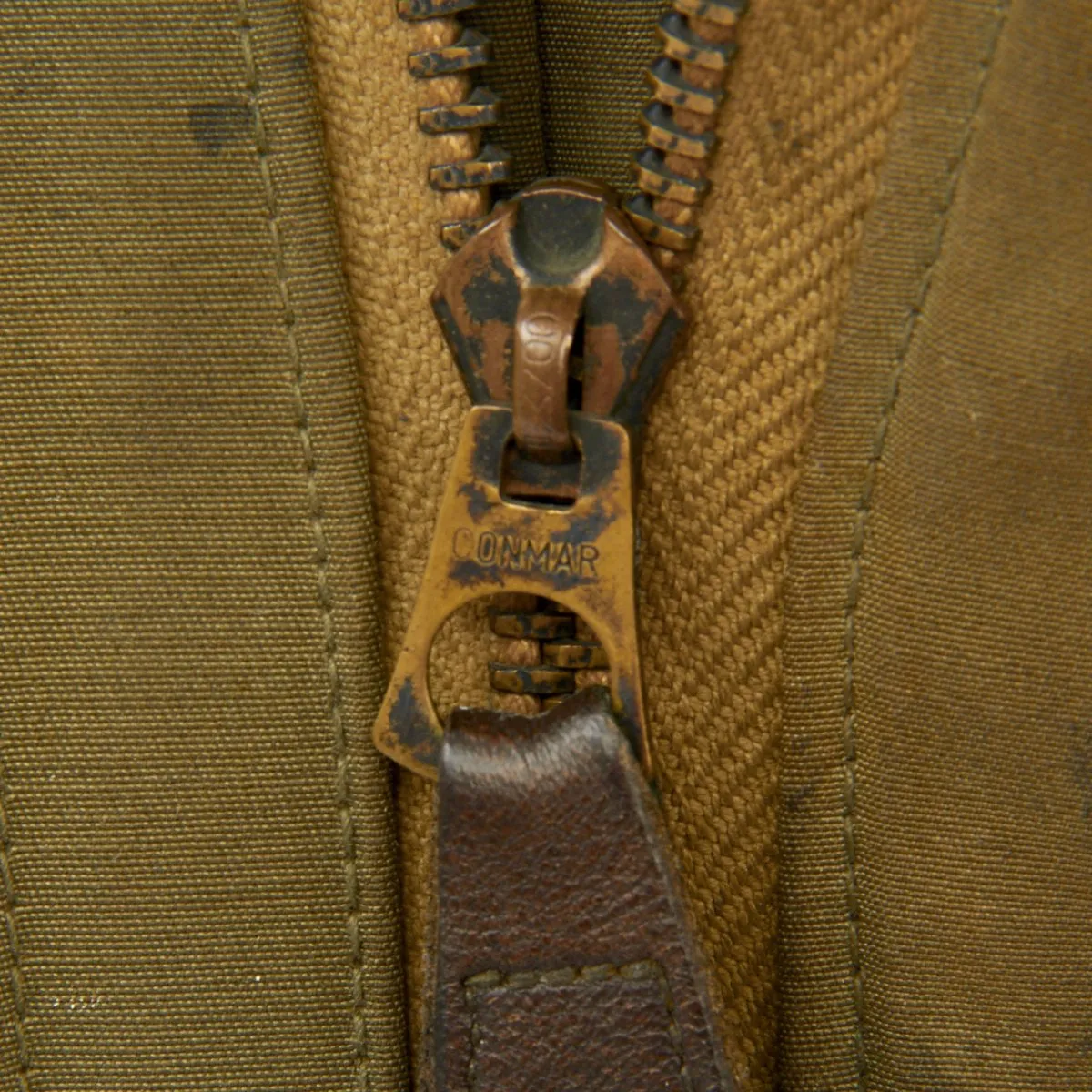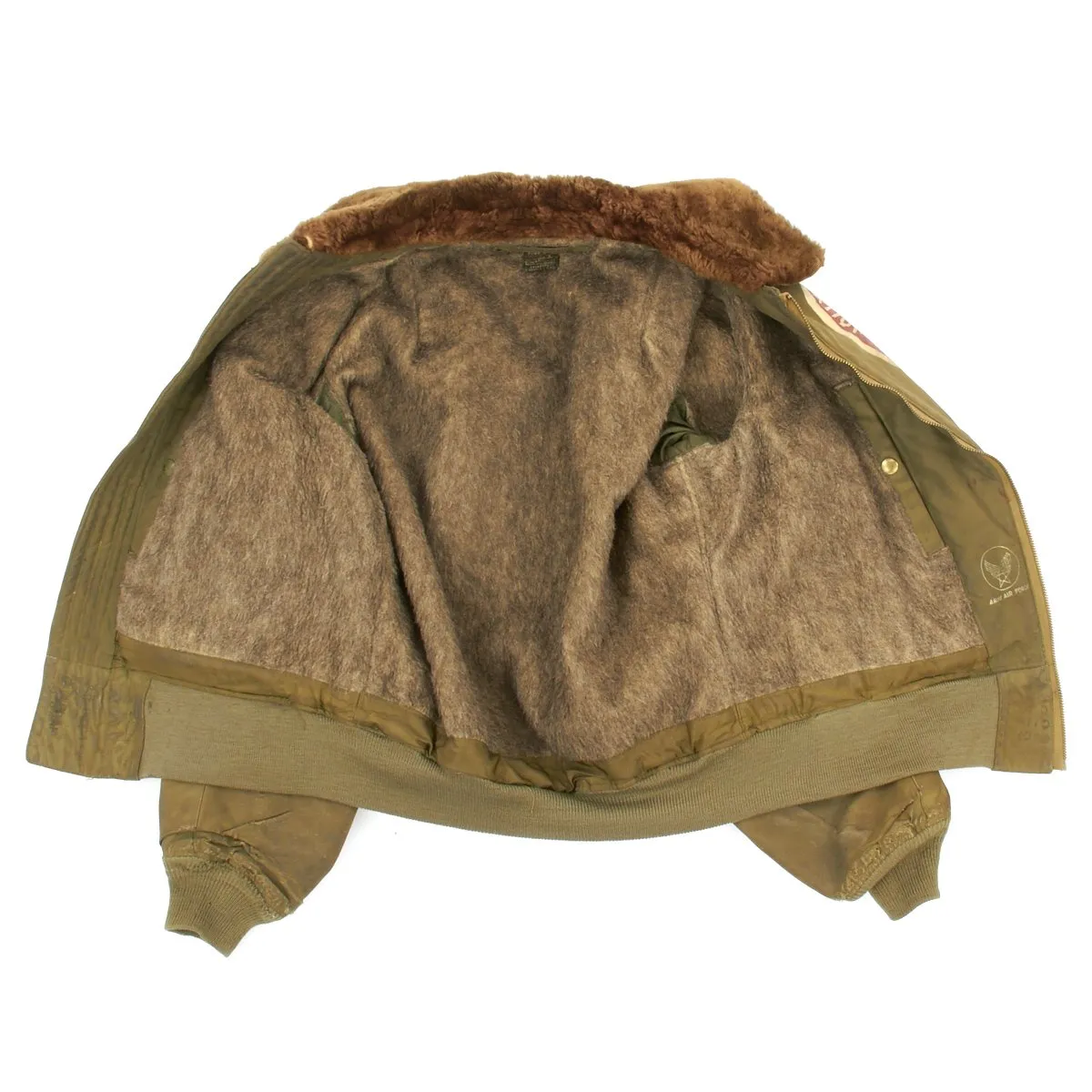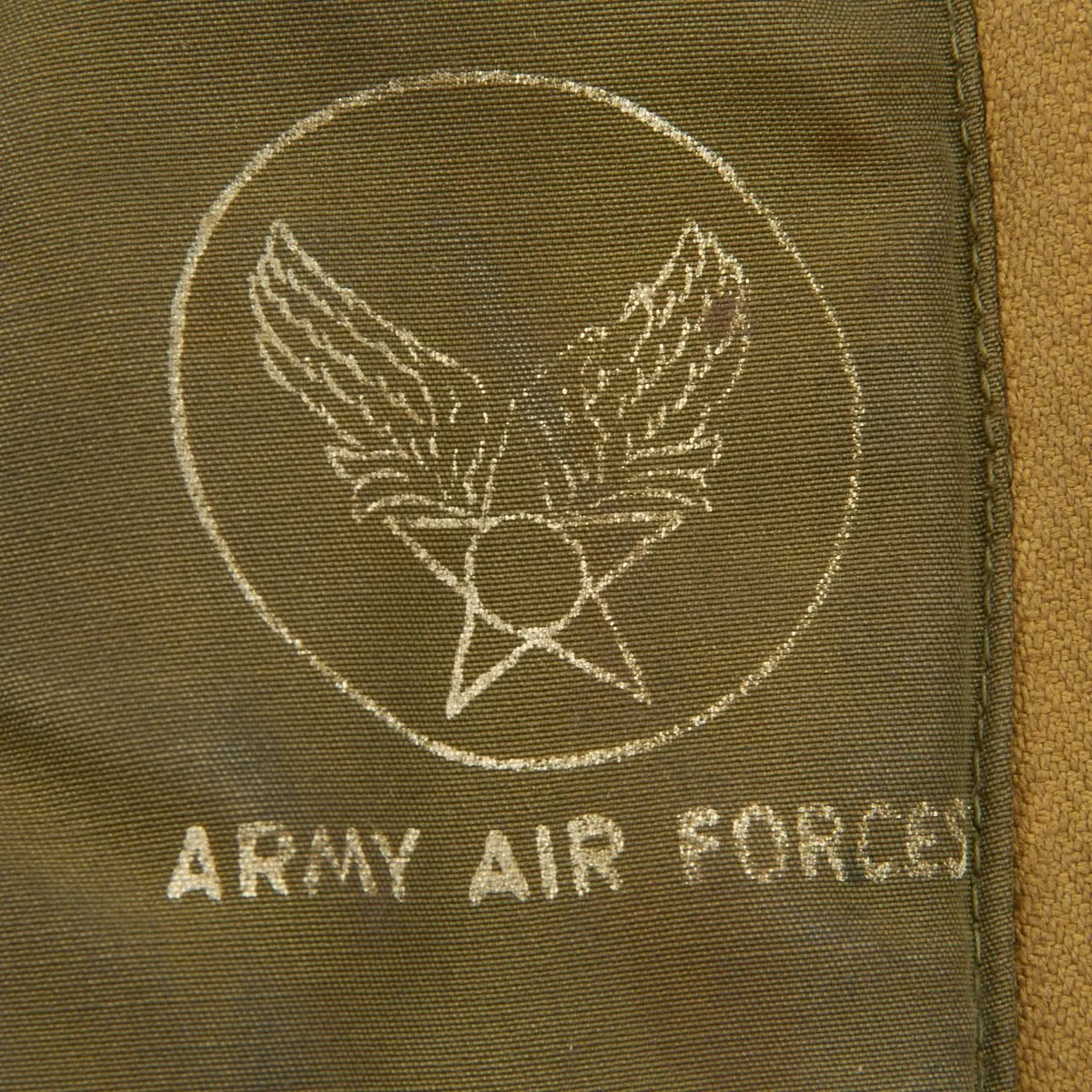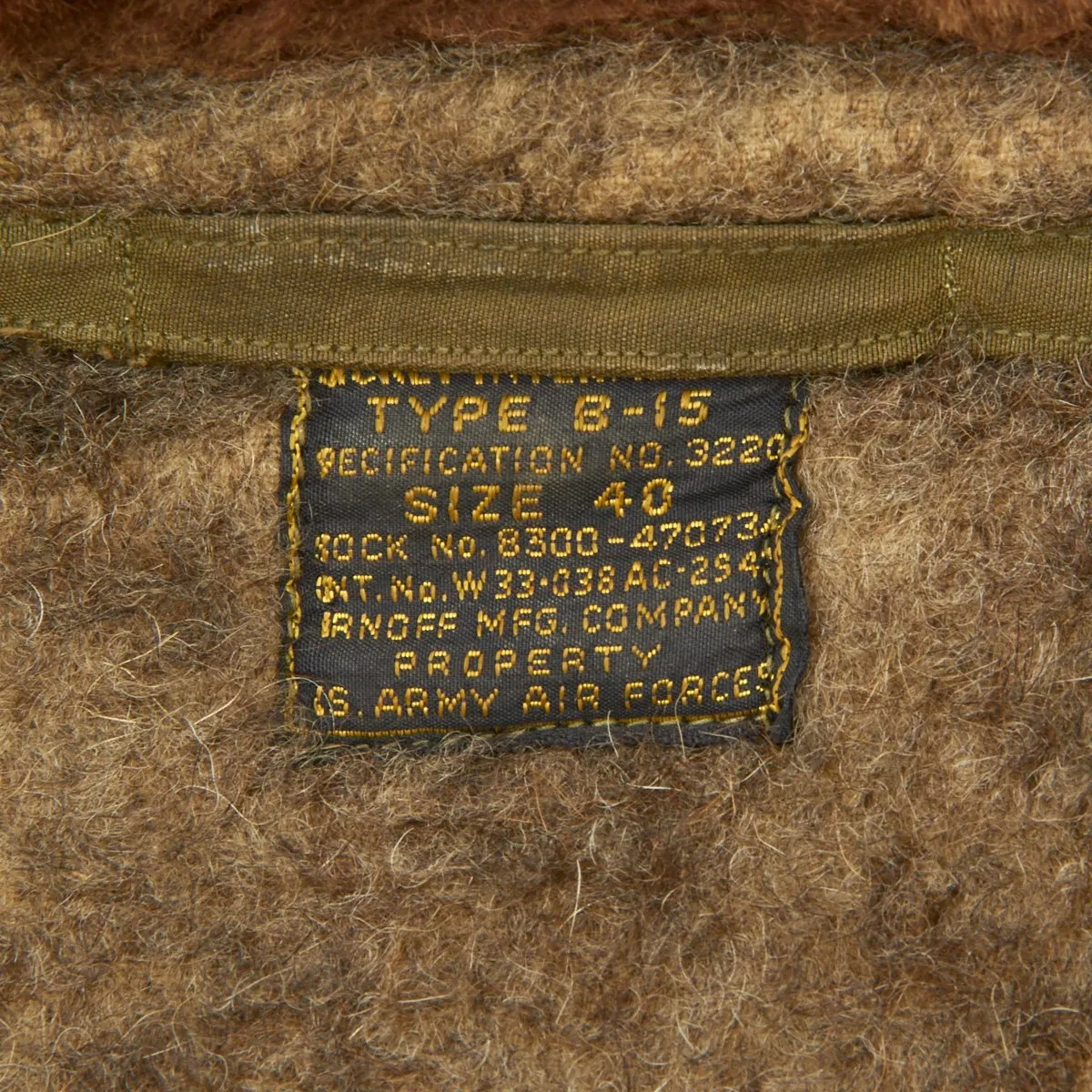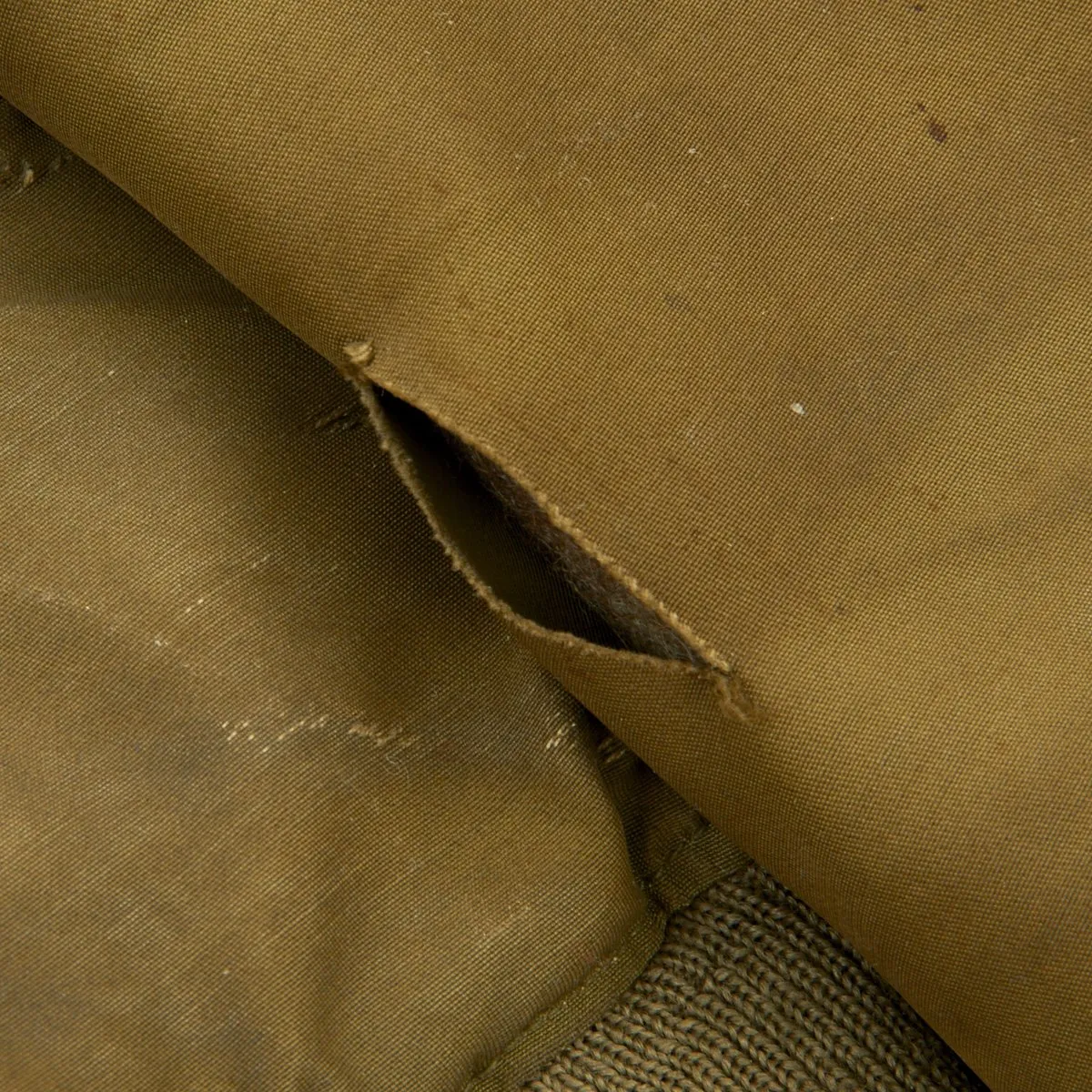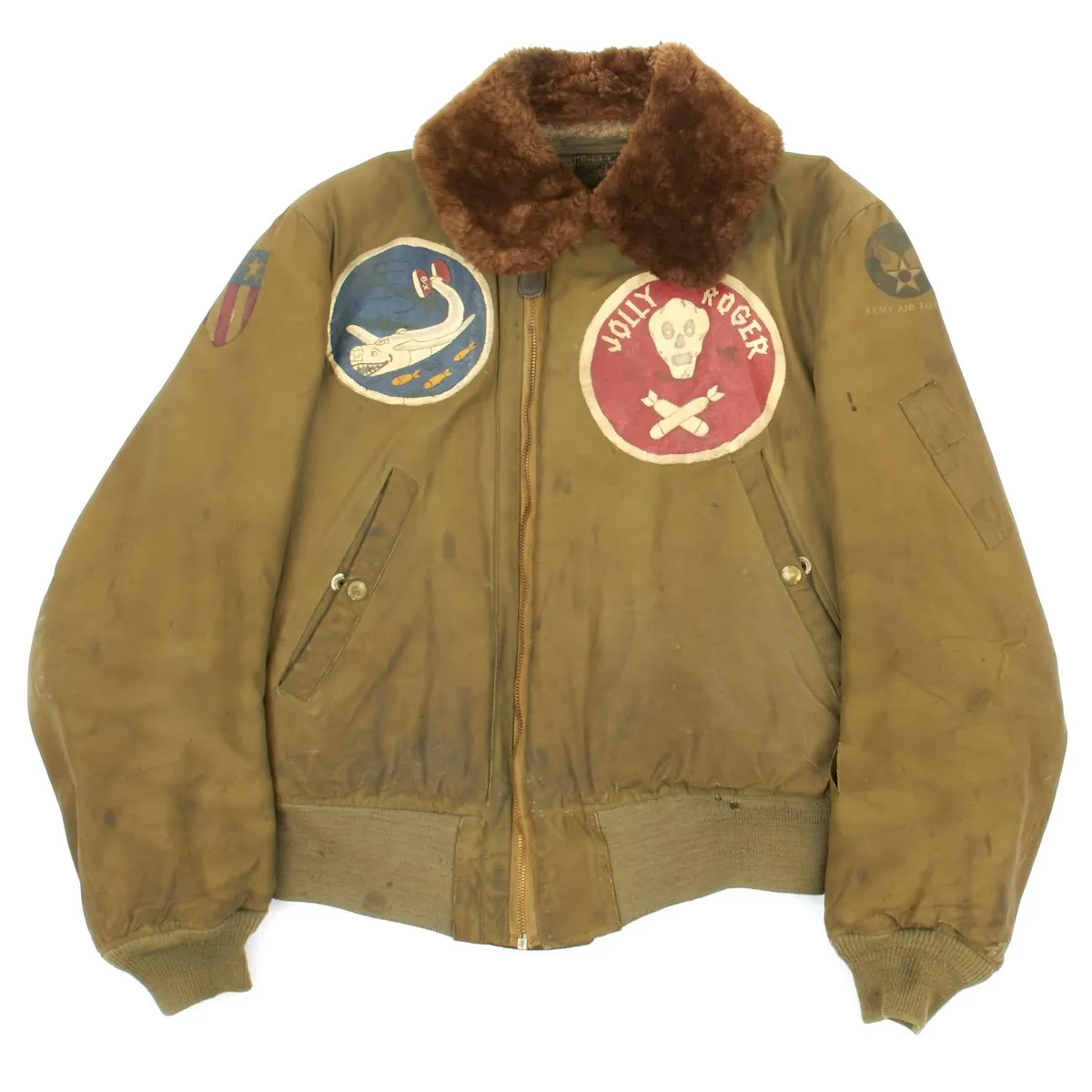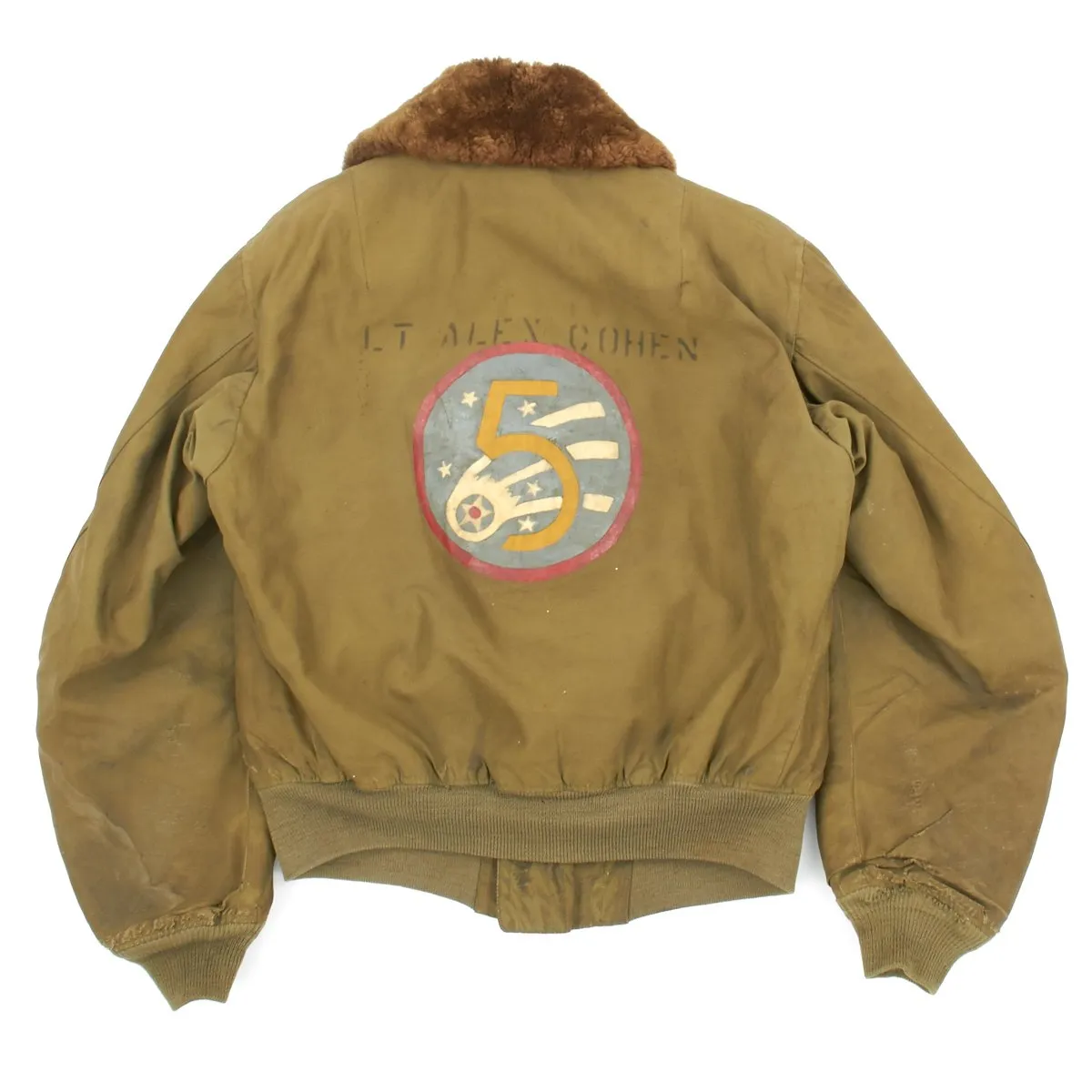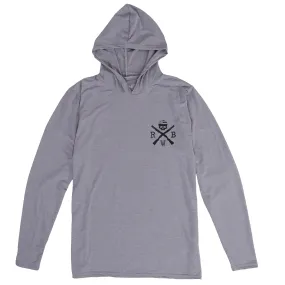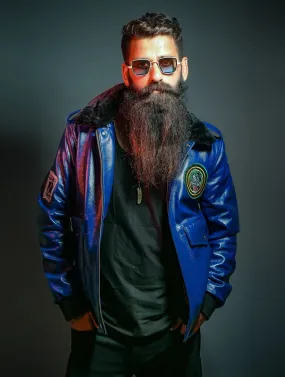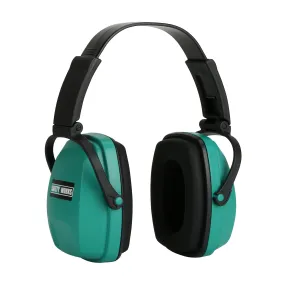Original Items: One-of-a-kind. Incredible B-15 Intermediate Flight jacket which was hand painted in WWII for Lieutenant Alex Cohen who flew in B-24 bombers and was a member of the 5th Air Force, 90th Bombardment Group known as the Jolly Rogers, 320th Bomb Squadron "Moby Dick".
The jacket is offered in excellent condition and features hand painted art that also appeared on the B-24 bombers that the 320th flew. On the front left chest of the jacket is the JOLLY ROGERS insignia with skull and crossed bombs and a red background which was correct for the 320th (319th Squadron used a Blue background, 321st used a Green background and the 400th used Black background). The right chest bears an fantastic vibrant and detailed hand painted MOBY DICK 320th Bomb Squadron insignia. This full color insignia depicts a B-24 as a killer whale. The right shoulder has a wonderful China-Burma-India CBI insignia. The left shoulder has a standard US Army Air Forces insignia which was present on most B-15 jackets. The reverse of the jacket bears a vibrant and detailed hand painted 5th Air Force insignia with the name LT ALEX COHEN stenciled in black paint above. Offered in excellent condition it is a size 40 with typical signs of age and use, has a working zipper and working snaps, original collar and internal lining as well as original data tag.
This jacket has been in a private collection for decades and is the best example of a painted B-15 Jacket we have ever encountered. It is perhaps also one of the very best Jolly Roger's flight jackets in any collection. This is an opportunity not to be missed!
History of the 320th Bomb Squadron "Moby Dick"
The squadron was first organized as the 320th Bombardment Squadron at Key Field, Mississippi in April 1942 as a Consolidated B-24 Liberator unit and one of the original squadrons of the 90th Bombardment Group. The squadron trained with Liberators in the southeastern United States under III Bomber Command until August.
The squadron moved to Willow Run Airport, Michigan for conversion training on newly manufactured Ford Liberators. Assigned to VII Bomber Command with B-24Ds, the unit moved to Hickam Field, Hawaii in September. The squadron arrived in northern Queensland, Australia in November 1942 and began bombardment missions under V Bomber Command almost immediately.
The squadron attacked enemy airfields, troop contingents, ground installations and shipping in New Guinea, the Bismarck Archipelago, Palau and the southern Philippines. The 320th was awarded a Distinguished Unit Citation for its operations in Papua through January 1943. The unit participated in the Battle of Bismarck Sea in March 1943, and earned another citation for strikes on enemy airfields at Wewak, New Guinea in September 1943 despite heavy flak and fighter opposition.
During 1944, the 320th supported the New Guinea Campaign through the end of June, then made long-range raids on oil refineries at Balikpapan, Borneo, in September and October. In January 1945, the squadron moved to the Philippines and supported ground forces on Luzon, attacked industrial targets on Formosa, and bombed railways, airfields, and harbor facilities on the Asiatic mainland. Shortly before the end of the war in the Pacific, the 90th moved to Okinawa, from which it would be able to strike the Japanese home islands.
After VJ Day, the squadron flew reconnaissance missions over Japan and ferried Allied prisoners of war from Okinawa to Manila. It ceased operations by November 1945. The squadron was inactivated in the Philippines in early 1946.
The squadron moved to Willow Run Airport, Michigan for conversion training on newly manufactured Ford Liberators. Assigned to VII Bomber Command with B-24Ds, the unit moved to Hickam Field, Hawaii in September. The squadron arrived in northern Queensland, Australia in November 1942 and began bombardment missions under V Bomber Command almost immediately.
The squadron attacked enemy airfields, troop contingents, ground installations and shipping in New Guinea, the Bismarck Archipelago, Palau and the southern Philippines. The 320th was awarded a Distinguished Unit Citation for its operations in Papua through January 1943. The unit participated in the Battle of Bismarck Sea in March 1943, and earned another citation for strikes on enemy airfields at Wewak, New Guinea in September 1943 despite heavy flak and fighter opposition.
During 1944, the 320th supported the New Guinea Campaign through the end of June, then made long-range raids on oil refineries at Balikpapan, Borneo, in September and October. In January 1945, the squadron moved to the Philippines and supported ground forces on Luzon, attacked industrial targets on Formosa, and bombed railways, airfields, and harbor facilities on the Asiatic mainland. Shortly before the end of the war in the Pacific, the 90th moved to Okinawa, from which it would be able to strike the Japanese home islands.
After VJ Day, the squadron flew reconnaissance missions over Japan and ferried Allied prisoners of war from Okinawa to Manila. It ceased operations by November 1945. The squadron was inactivated in the Philippines in early 1946.
History of the Type B-15 Intermediate Flight Jacket
The U. S. Army Air Force Type B-15 Intermediate Flight Jacket was developed from lessons learned in field use of the highly popular B-10 Flight Jacket of 1943. As early as 1942, the Materiel Division of the US Army Air Forces was seeking an alternative material to sheepskin for producing flying suits, and by October of that same year development had begun at Wright Field on the Intermediate Flying Jacket, Type B-10. Originally constructed of an outer shell made from a fine, cotton twill, and lined with an alpaca-and-wool pile lining, the B-10 Flight Jacket was standardized on July 22,1943, though it was superseded less than 9 months later by the B-15 Flight Jacket. Both the B-10 and B-15 Flight Jackets were designed as replacements for the sheepskin flight jackets of the 1930s and early 1940s, and represented the first cloth-shelled, alpaca fur-lined flight jackets of the USAAF. These flight jackets were an instant success with just about every aviator who encountered one, being much lighter and more versatile than the flight jackets they replaced. Intended for wear in climates between 25 degrees and 55 degrees Fahrenheit, the B-15 Flight Jacket was ideally suited for early spring and late fall and winter.
End-Zone Twill is manufactured with 100% cotton in the warp (the fibers than run in a longitudinal direction) and 100% rayon in the weft (the fibers that run in a latitudinal direction), giving the fabric a unique appearance of being shiny on one side and dull on the other. The density of the weave makes this fabric particularly strong; with 140 yarns per inch, this is an extremely dense cloth that feels both polished and hard on the surface, while wearing magnificently.
In May 1942, Hirsch-Werner, Inc. contacted the Army Air Corps offering a new, specially developed cloth they called “End-Zone Twill,” which had previously been utilized in the manufacture of football pants because of its extreme durability and strength. When the B-15 was introduced, End-Zone Twill was used as trim on major stress and heavy-wear areas of the lining, though the Rough Wear Clothing Co., along with a few other manufacturers, received contracts for some of their entire production of B-15s Flight Jackets to be made completely of End-Zone Twill.
End-Zone Twill is manufactured with 100% cotton in the warp (the fibers than run in a longitudinal direction) and 100% rayon in the weft (the fibers that run in a latitudinal direction), giving the fabric a unique appearance of being shiny on one side and dull on the other. The density of the weave makes this fabric particularly strong; with 140 yarns per inch, this is an extremely dense cloth that feels both polished and hard on the surface, while wearing magnificently.




